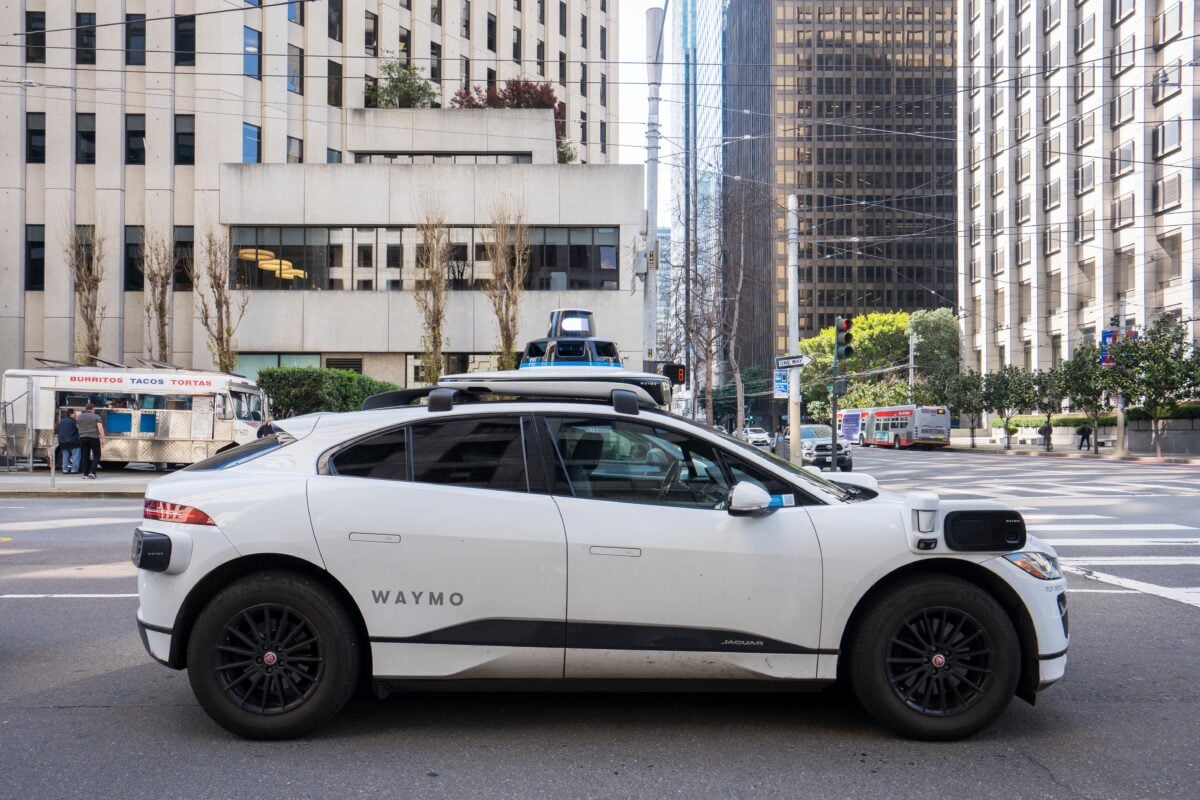TLDRs;
- Waymo begins robotaxi testing in Denver and Seattle with up to 12 vehicles per city, overseen by safety drivers.
- The expansion follows New York City’s tightly regulated permit program, where Waymo runs eight vehicles in Manhattan and Brooklyn.
- Waymo already operates in San Francisco, Phoenix, Los Angeles, Austin, and Atlanta, offering fully driverless rides in select markets.
- Competition is intensifying with Baidu’s Apollo Go in Asia and Tesla’s trials in U.S. cities, challenging Waymo’s lead.
Alphabet’s autonomous vehicle division, Waymo, is extending its footprint in the U.S. with fresh robotaxi trials in Denver and Seattle.
Starting this week, the company will deploy up to 12 electric vehicles in each city, including Jaguar iPace SUVs and Geely Zeekr models, to validate its self-driving technology under local conditions.
Safety drivers will remain behind the wheel during the initial rollout, ensuring that human oversight is present as the cars gather data and navigate real-world traffic.
Waymo Expands Beyond Core Markets
Waymo has already established commercial robotaxi operations in San Francisco, Phoenix, Los Angeles, Austin, and Atlanta. In some of these markets, passengers can hail a fully driverless ride directly through Uber, while other locations still require booking via Waymo’s proprietary Waymo One app.
The new Denver and Seattle trials underscore the company’s measured approach, gradually building trust in each city by starting with manual or semi-autonomous phases before transitioning to fully driverless rides.
This testing strategy reflects lessons Waymo has gathered from its 15-year journey, which began as a secret Google project in 2009. Since then, the company has logged over 8 million autonomous miles and facilitated more than 10 million robotaxi trips.
Learning from New York’s Complex Landscape
The Denver and Seattle expansion follows Waymo’s recent milestone in New York City, where it became the first company to secure a permit for self-driving car tests.
In New York, Waymo is currently operating eight vehicles across Manhattan and Downtown Brooklyn, with safety drivers required under state law.
Unlike its larger deployments in Phoenix or San Francisco, New York’s rollout remains small and highly regulated due to the city’s dense traffic, high pedestrian activity, and unpredictable street patterns. The New York permit requires Waymo to share detailed operational data with authorities, report safety interventions, and coordinate with emergency services, illustrating the growing trend of structured regulatory frameworks for autonomous vehicles.
This cautious model provides a roadmap for how cities like Denver and Seattle may refine their oversight if Waymo transitions from testing to commercial deployment in these regions.
Competition Heats Up in the Robotaxi Race
Globally, Waymo faces stiff competition. In Asia, Baidu’s Apollo Go is rapidly scaling robotaxi services, while Tesla continues manned robotaxi trials in Austin and San Francisco. Waymo’s edge lies in its early start, extensive safety data, and partnerships with major automakers.
However, as more cities establish regulatory guardrails for autonomous vehicles, the speed and scope of future deployments will depend not only on technological readiness but also on public acceptance and local government policies.
For Denver and Seattle, the arrival of Waymo’s test fleets marks the beginning of a new era in urban transportation. Whether residents will soon be hailing driverless rides alongside traditional Uber or Lyft trips depends on how quickly Waymo can demonstrate safety, reliability, and seamless integration into the cities’ transportation ecosystems.


